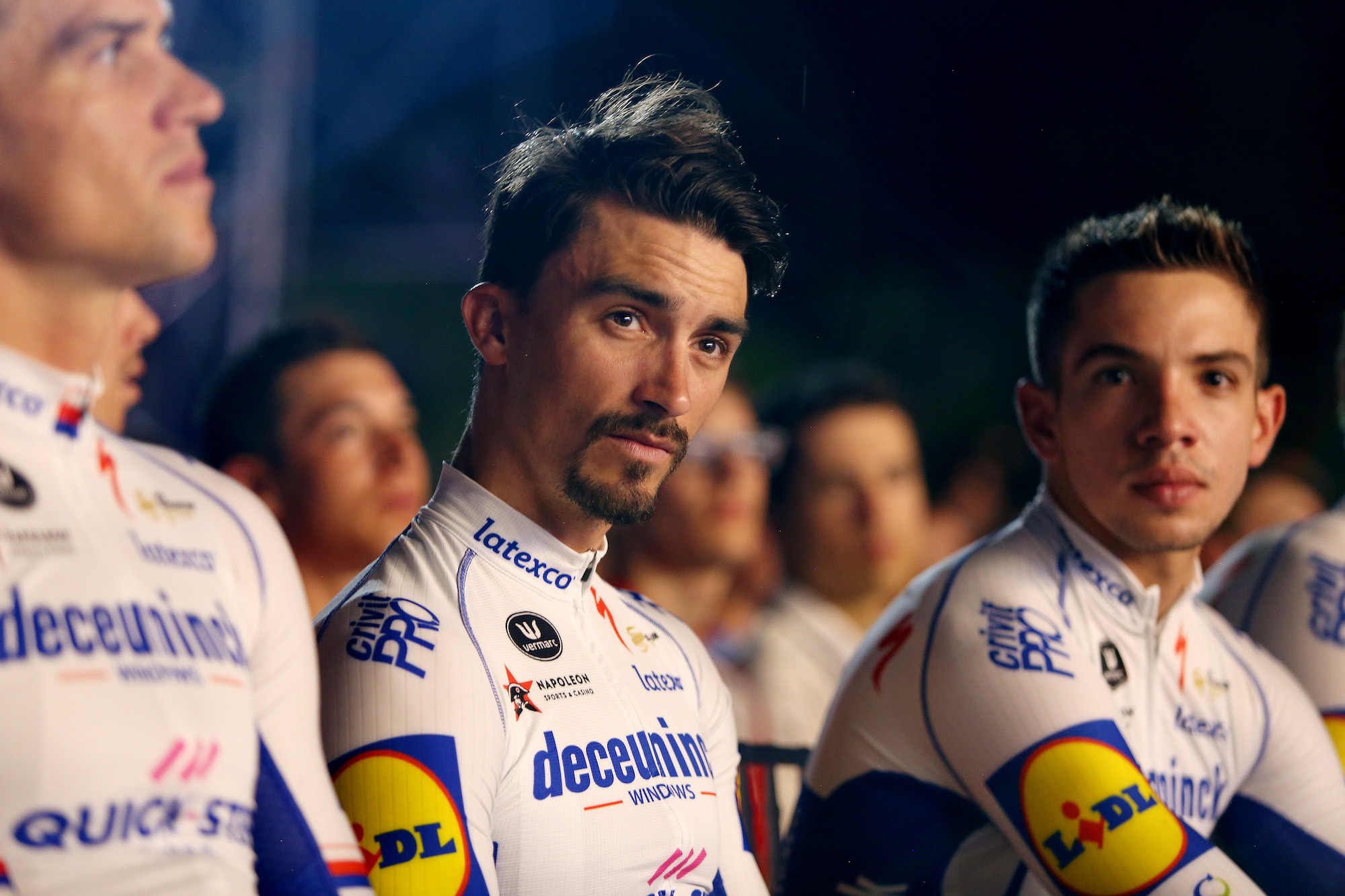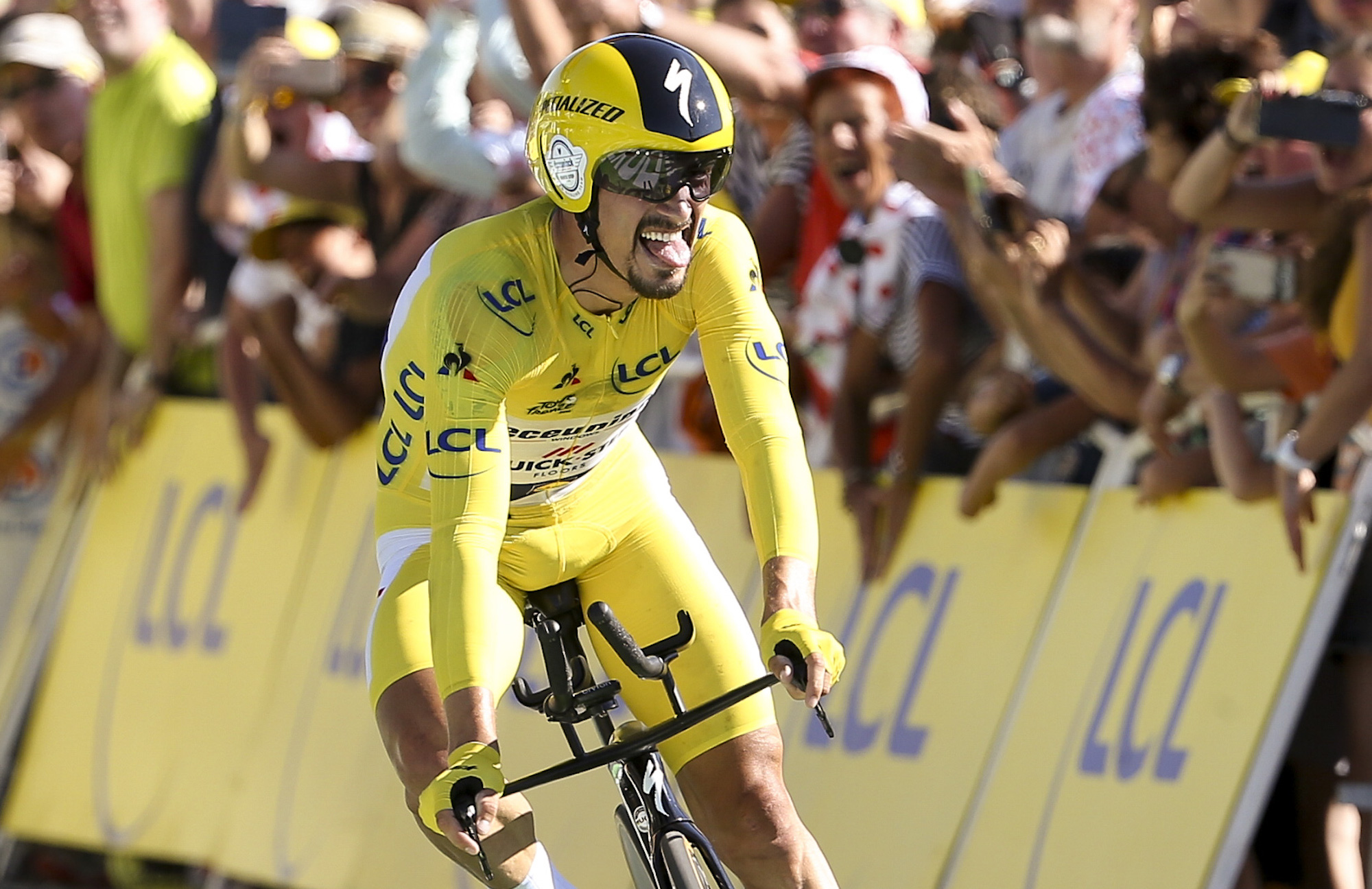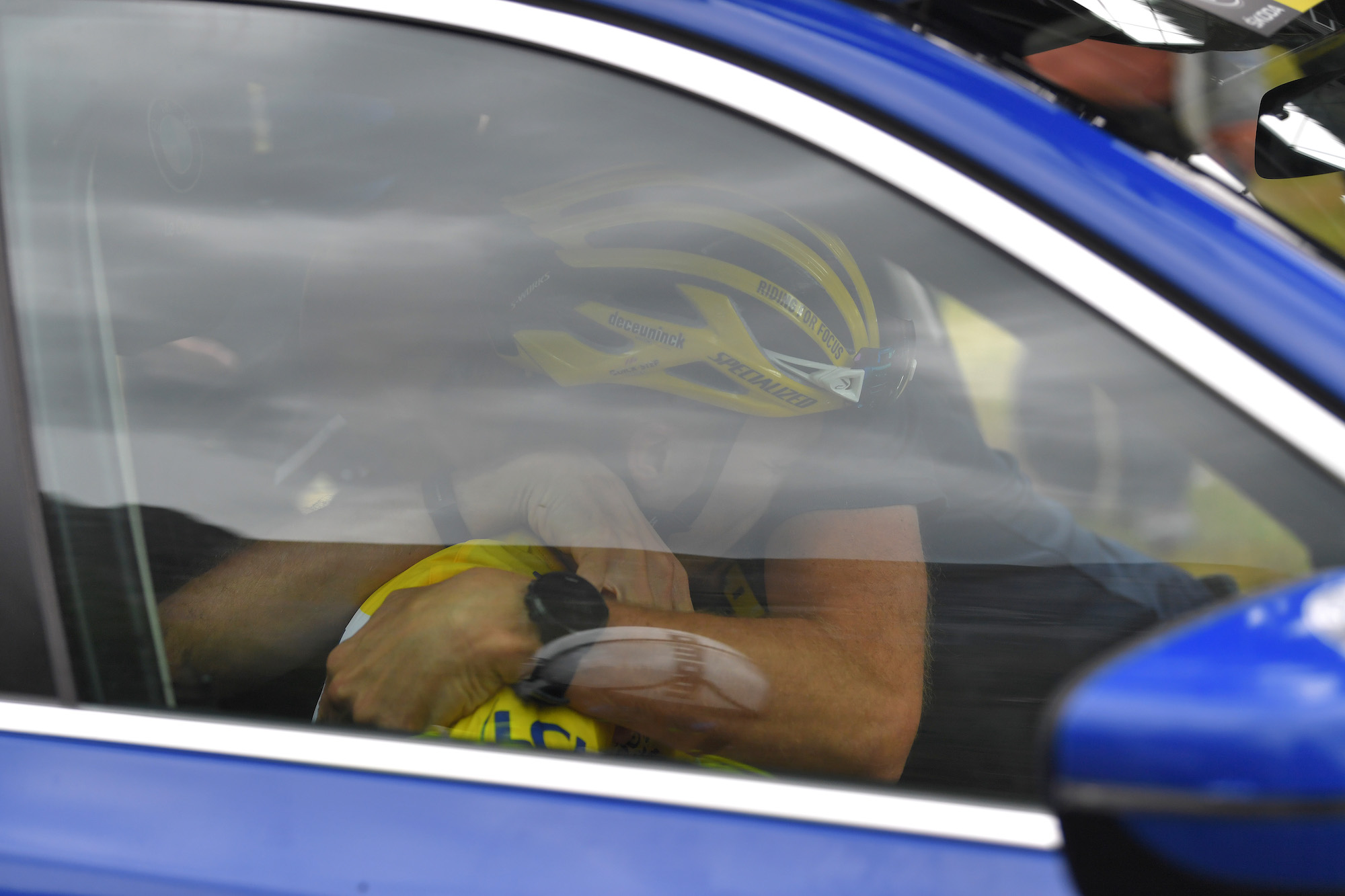'Better than last year? Impossible': Julian Alaphilippe, a rider with the world at his feet
After a career-defining 2019 season, how can the Frenchman do better in 2020? Impossible, he says, but will that really stop him?

Julian Alaphilippe in Argentina for the Vuelta a San Juan 2020 (Photo by Maximiliano Blanco/Getty Images)
The latest race content, interviews, features, reviews and expert buying guides, direct to your inbox!
You are now subscribed
Your newsletter sign-up was successful
From the outside, it would appear Julian Alaphilippe is currently in a weird state of flux.
Everyone wants to know either one of two things. Actually, usually both. They ask the 27-year-old to relive his 2019 season and they also want to know how he's going to possibly be able to surpass those achievements this year and in the years to come.
This acute interest in these two places in time where he can't be right now doesn't appear to faze Alaphilippe, although after chatting to the media for hours on end he says the one question he wishes someone had asked is how his Christmas was.
The Frenchman already seems fairly tired before the season has even begun, but forgets this weariness and flickers into life when talk turns to bike racing.
Having taken big wins in the spring at Strade Bianche, Milan - San Remo and Flèche Wallone, his season was already a success. But then came the Tour de France, two stage wins and wearing the yellow jersey for..."how many days was it?" Alaphilippe asks the assembled press. Fourteen, Julian. You wore the yellow jersey of the Tour for two weeks and brought France the closest they've been to a home victory in years. It's crazy someone could forget something like that.
It starts to make sense, though, when he's asked how his 2020 can possibly even begin to be better than 2019.
"It cannot, it's not possible I don't think" Alaphilippe replies. "But for sure I will do my best to go again, to have another great season. I've realised that last year was really special with a lot of victories, quality victories, and a lot of emotion. So it will be really difficult to do something like that again but I will try my best."
The latest race content, interviews, features, reviews and expert buying guides, direct to your inbox!
> More long-read features: Remco Evenepoel says pink jersey at Giro d’Italia ‘would change my life totally’ <
A promise to try his best isn't enough to sate the appetite of those witnessing the romanticism of a Frenchman mounting a serious, yet unexpected, challenge on the yellow jersey. What about the 2020 Tour? Will you now try to win a first Tour title for France since 1985?
"It's maybe something I will start to think about. But not this year, and maybe not in two years, but when I'm around 30 years old then maybe in one moment I can but it's not my main moment."
The Deceuninck - Quick-Step rider is relaxed, pretty much at total ease with himself and the world at this point in his life. He knows what he wants and knows what it takes to get it. Some questions require no hesitation. Rainbow jersey or Olympic gold? "Rainbow." Is there more pressure nowada-? "No, no, no, no," he interrupts. "Because I know what my goal is, I know what I want to do and what I can do also.
"For sure, after what I did last year a lot of people write that I could win the Tour. But in the end I know what I can do and where I want to go."
At 27 he has time on his side. Having already proven himself and achieved so much that he can take his time with the other bucket list items, safe in the knowledge he's unlikely to be without a top team wanting to back him.
You've proven you're an exceptional rider, Julian, but what about your weaknesses?
"...sorry, I don't understand...?"
Quite apt that someone so talented appears to be unaware of the very idea of shortcomings. But after the language-barrier is broken we have our answer.
"Ahh yes, sorry, sorry!" Alaphilippe says, then taking a long pause, which sends a giggle around everyone hanging on his every word. This is quickly dismissed by the ruthless racer with an affable nature. "No, no! I'm...I'm not so good not so bad [at everything]. I can do a sprint but I'm not Cavendish, I'm a good climber but I'm not Christopher Froome. So in the end I have to deal with what I have, and sometimes like last year at the beginning of the season, I was really focused on Milan - San Remo so I was better in the sprint than in the mountain at that moment.
"But after I did a lot of training in the mountains, and also at altitude, and in the Tour I was better in the mountains and I lost my explosivity in the sprint. I don't like having only one way to ride, I like [he slaps one hand on the other in various directions] bam, bam, bam!"
For the rest of his life, no matter which endeavours he directs his attention towards, people will always be absorbed by that 2019 Tour.
Did he think he could win it? "I never dreamed of winning it but when I was in yellow of course you have to think, 'ah f**k, if you fight maybe you can win.' For sure, otherwise, you don't fight," Alaphilippe explains. "But I always knew that the last three days in the Alps would be really hard for me and it was."

Those 14 days in yellow are something that will not only stay with the Frenchman but also the seven other Deceuninck - Quick-Step team-mates who accompanied him on one of the most memorable Grand Tours in recent years.
"It was incredible," Kasper Asgreen reminisces. "One of the things that struck me the most was when I was riding around in the peloton I felt sometimes I didn't even have to look back to know that I had Julian on my wheel because I could hear the crowd at the side of the road. They were going bananas right as I went past and I knew for sure it wasn't for me so Julian must be right behind me and then I would look behind and there he was."
"It gave a lot of goosebumps, of course," the dour Belgian Yves Lampaert adds. "I was very proud that I was in a team with Julian. We all fought like lions for the yellow jersey."
Speaking of lions, that image of Alaphilippe in the team bus surrounded by 14 of the furry podium mascots was another visual aid to understanding the scale of his achievement despite not finishing on the podium in Paris. Where are those lions now? "I gave some to the children of my team-mates, I gave some to my family and I think I still have three or four at home." You'd have already known from his heart-on-sleeve racing style, but numbers are clearly not of much importance.
Ask a rider during a race about whether they can win and what could happen and their job is to measure expectations. After the dust has settled, however, you get to find out their true feelings. Lampaert hones in on his team-mate's stage 13 time trial win in Pau as the turning point when he believed Alaphilippe would wear yellow on the Champs-Élysées.
"Yeah, yeah, from the time trial," he says. "Also on the Tourmalet he was really strong so I thought he could do it."
Emotions were running high for the man himself too. After skidding to a stop in his yellow skinsuit and being mobbed by Deceuninck - Quick-Step staff, it took a while for everything to sink in.
"I really fought, I was only thinking about keeping the yellow jersey," Alaphilippe explains, saying stage 13 was the most emotional day of his race. "But when I saw that I'd won, having taken some seconds from a guy like [Geraint] Thomas, I was super happy. That night I couldn't believe what I did."
With his second place to compatriot Thibaut Pinot on the Tourmalet the day after, Alaphilippe had captured the hearts and minds of his countrymen. "I don't spend that much time in France..." Alaphilippe says, reflecting on his new-found greater profile and popularity. "But when I do people always say thank you, thank you for the emotion, bravo. I'm happy to make the people happy with emotion."
The emotion of Alaphilippe eventually losing the race lead at one of the final hurdles made the whole story that much sweeter. To the victor belong the spoils, and young Egan Bernal's victory will have its place in history, but 2019 was Alaphilippe's Tour.

The allure of the yellow jersey is its ability to defeat a rider who's been strong enough to take it in the first place, which Lampaert witnessed first hand.
"You could see after 14 days in the yellow jersey he was tired at the end. He had to do a lot more stuff than other riders, the press, meetings, doping control. That meant he was late back to the hotel, for massages and team meetings. I think that was the point when he lost the Tour de France."
So, heading into a new season, who knows what Alaphilippe could win? He seems to have the world at his feet and whatever he decides he fancies adding to his palmarès he'll make a pretty good go of. What did he learn during the Tour that he can take into this season?
"It's not the moment to learn. You just have to be focused and enjoy and not make a mistake. You learn after it's finished."
Well, what have you learned since it finished then?
"I learned it's not easy to wear the yellow jersey for 14 days at the Tour."
Jonny was Cycling Weekly's Weekend Editor until 2022.
I like writing offbeat features and eating too much bread when working out on the road at bike races.
Before joining Cycling Weekly I worked at The Tab and I've also written for Vice, Time Out, and worked freelance for The Telegraph (I know, but I needed the money at the time so let me live).
I also worked for ITV Cycling between 2011-2018 on their Tour de France and Vuelta a España coverage. Sometimes I'd be helping the producers make the programme and other times I'd be getting the lunches. Just in case you were wondering - Phil Liggett and Paul Sherwen had the same ham sandwich every day, it was great.